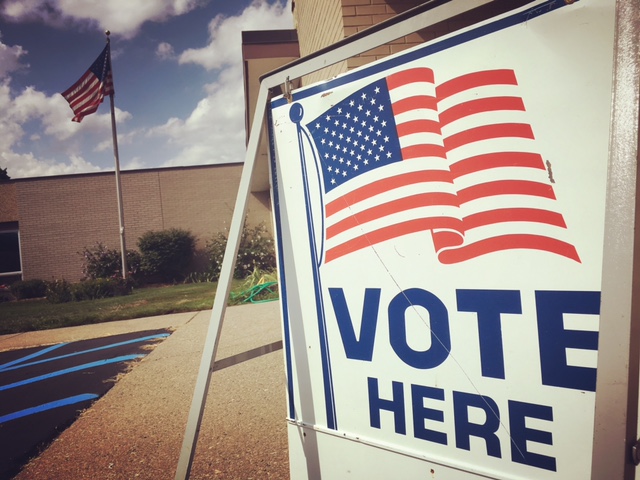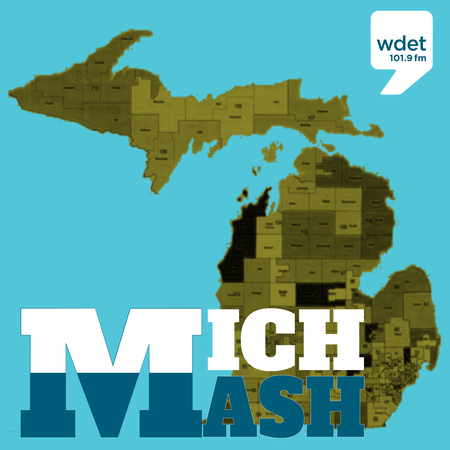MichMash: Why We Will Probably Never See Another Election Like 2018 In Michigan
There was one key aspect of the midterm elections in Michigan that we’ve never seen before and will probably never see again.


Voter turnout was huge in the midterm election.
That turnout — combined with a new ban on straight ticket voting here in Michigan — probably led to longer lines at the polls.
As part of the weekly series MichMash, Jake Neher and Cheyna Roth talk about why we’ll probably never see anything like it again.
Click on the audio player above to hear the full conversation.
Shortly before ballot had to be printed for the election, a judge ordered Michigan elections officials to remove the straight-party-ticket option that has been available to voters for 127 years.
That means this was the first election any of us in Michigan has voted in that did not include that option.
Note: If you are 127 years old, you have more than earned the right to call us and yell at us for this egregious error.
During this same election, voters overwhelmingly approved Proposal 3, which enshrines straight-party-ticket voting in the state’s constitution. That means we’ll probably never see another ballot in Michigan that does not include the straight-party option.
Therefore, 2018 was an anomaly when it comes to this part of our voting system.
So, what was the effect?
When it comes to the results of the election, there’s little evidence the lack of straight-party voting had much impact.
“I don’t think think straight ticket voting made that much difference that much difference this year, if any,” says longtime Michigan political pundit Bill Ballenger of The Ballenger Report. “And I think, also, the huge turnout with a very polarized electorate meant that it probably didn’t make a difference anywhere.”
But when it comes to the actual process of voting, there’s reason to believe it did make lines longer and slowed things down.
“There’s no question,” says Chris Thomas, who served as Michigan’s elections director for 36 years. He was also a vocal supporter of Proposal 2.
“I was in Detroit on Election Day with the city clerk going precinct to precinct,” says Thomas. “And I was timing some voters, just randomly as we went to each place. And it was pretty consistently well over ten minutes to mark that ballot. That is an increase. And that is the long ballot Michigan has.”
An elections mystery is afoot
It’s pretty early to evaluate exactly how much an effect the elimination of straight-ticket voting had on the election. The Michigan Secretary of State’s office has not had the chance to dig into that question.
“At this point, the department hasn’t done a review of how the elimination of straight-ticket voting may have affected wait times so I’m not able to help you at this point,” said spokesperson Fred Woodhams. “We just don’t know enough.”
And we may never really know. Because this is the only time we’ve seen this in Michigan — and because we will probably never see it again — it is impossible to compare this election to another one apples-to-apples. That’s especially true because this was an unusually high turnout for a midterm election.
Advice going forward
Whether or not the straight-ticket option is on the ballot or if you’re one of those people who uses that option, keep your fellow precinct-mates in mind when you’re voting.
If you like to fill in a bubble in each race, come prepared. Do your research ahead of time so you don’t get stuck on one of those pesky races you hadn’t thought much about. It happens to the best of us.
But the more you know on your ballot ahead of time, the less time you’re likely to take at the polls. That means you can move on with your day and the lines will be that much shorter.
